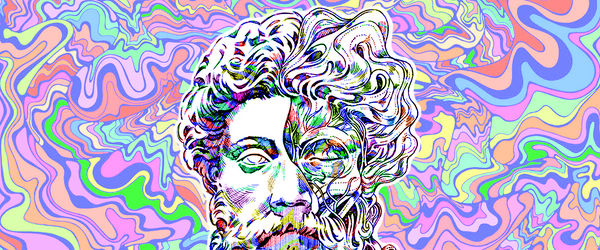Jordan Bates • • 8 min read
8 Books on Zen and Taoism to Liberate Your Mind and Heart

“Zen Buddhism is a way and a view of life which does not belong to any of the formal categories of modern Western thought. It is not religion or philosophy; it is not a psychology or a type of science. It is an example of what is known in India and China as a ‘way of liberation,’ and is similar in this respect to Taoism, Vedanta, and Yoga.”
― Alan W. Watts
The above quote by Alan Watts is a fine place to begin to understand the curious nature of Zen Buddhism and Taoism. Rather than being religions or even philosophies, Watts suggests that Zen and Taoism are “way[s] of liberation”—i.e. approaches to life that liberate the individual from day-to-day drama and from the ceaseless ebb and flow of mental states.
Although Zen and Taoism are decidedly distinct entities with different attributes, Watts seems to have been deeply interested in what they have in common. Both Zen and Taoism seem to emphasize a kind of radical non-resistance to the present moment—a lack of attachment and expectation that allows one perpetually to take things in stride, to embrace whatever is at hand, to live mindfully and spontaneously without being burdened by anxiety or stress.
The general idea here—of relinquishing attachment to particular ideas, things, and outcomes in favor of accepting whatever is before you—has proven immeasurably valuable to me. Practicing acceptance of every moment and circumstance has helped me to realize a level of calmness, equanimity, and contentedness I would not have thought possible. I still falter and lose my cool sometimes, but I’m much quicker to recognize the futility of getting swept away by emotional reactions to things that I cannot change.
Naturally, Zen and Taoism are much more than I can say in this brief synthesis. What I’ve just written is inevitably reductive and does not do justice to these beautiful teachings. I’ve written lengthier introductions to Taoism and to Zen previously, and I urge you to check those out for a more comprehensive explanation. Even then, though, a blog post can only say so much. If you’re truly intrigued and want to pursue a fuller appreciation, I strongly suggest delving into more in-depth literature. These books are a swell place to start. In various ways, each of them has furthered my understanding of Taoism and/or Zen, and I ardently recommend all of them.
1. The Way of Zen by Alan Watts
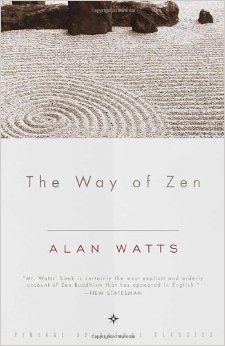
“Zen … does not confuse spirituality with thinking about God while one is peeling potatoes. Zen spirituality is just to peel the potatoes.”
― Alan Watts, The Way of Zen
Ah, Alan, you beautiful, whimsical articulator. When one thinks of Alan Watts, one may tend to think first of his dreamy voice that seems so effortlessly to narrate the vast number of lectures to which he treated his contemporaries and which millions of people are still enjoying on YouTube and elsewhere.
However, Alan’s books are brilliant too. There is a comprehensiveness and depth of explanation in Alan’s writing that goes beyond what he was able to deliver in his off-the-cuff lecture format. This particular book is a beautiful introduction to Zen, probably the first book I’d recommend on the subject.
2. Tao: The Watercourse Way by Alan Watts
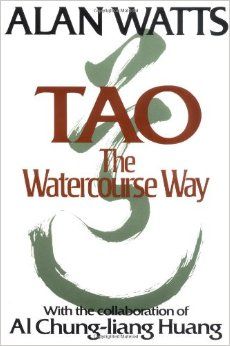
“You are asked — temporarily, of course — to lay aside all your philosophical, religious, and political opinions, and to become almost like an infant, knowing nothing. Nothing, that is, except what you actually hear, see, feel, and smell. Take it that you are not going anywhere but here, and that there never was, is, or will be any other time than now. Simply be aware of what actually is without giving it names and without judging it, for you are now feeling out reality itself instead of ideas and opinions about it. There is no point in trying to suppress the babble of words and ideas that goes on in most adult brains, so if it won’t stop, let it go on as it will, and listen to it as if it were the sound of traffic or the clucking of hens.
Let your ears hear whatever they want to hear; let your eyes see whatever they want to see; let your mind think whatever it wants to think; let your lungs breathe in their own rhythm. Do not expect any special result, for in this wordless and idea-less state, where can there be past or future, and where any notion of purpose? Stop, look, and listen . . . and stay there awhile before you go on reading.”
— Alan Watts, Tao: The Watercourse Way
You can use more Alan Watts in your life. I promise. I wouldn’t open this list with back-to-back Alan Watts recommendations unless I really felt that way. Alan is the superhero of translating Eastern thought for a Western audience. And, as with The Way of Zen, this is a positively illuminating articulation of the central concepts of Taoism and the world-transforming potential of surrendering to The Way of Things.
3. Siddhartha by Herman Hesse
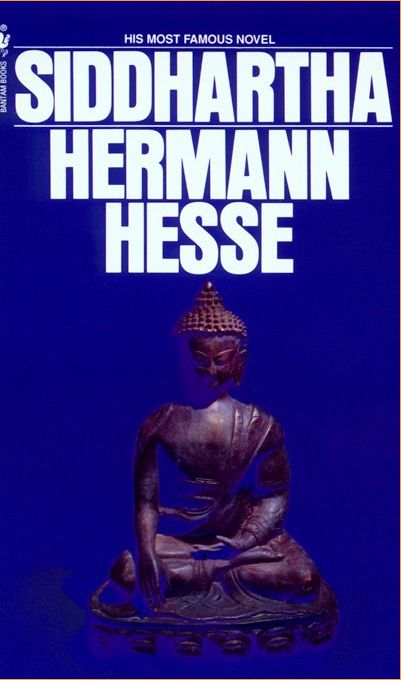
“When someone seeks,” said Siddhartha, “then it easily happens that his eyes see only the thing that he seeks, and he is able to find nothing, to take in nothing because he always thinks only about the thing he is seeking, because he has one goal, because he is obsessed with his goal. Seeking means: having a goal. But finding means: being free, being open, having no goal.”
― Hermann Hesse, Siddhartha
The plot of Siddhartha is the quintessential hero’s journey, as discussed by Joseph Campbell and many others. Siddhartha, a precocious young man, must vacate the shore of the familiar and enter the ocean of the unknown, facing new challenges in order to gain the understanding that will ultimately liberate him and allow him to teach others.
The wisdom that he gains is of a decidedly Zen flavor, though the book shouldn’t be seen as promoting any particular interpretation of Zen or path of realization. In fact, it is simultaneously a critique of guru-worship and of “fundamentalist” forms of Buddhism.
4. Being Peace by Thich Nhat Hanh
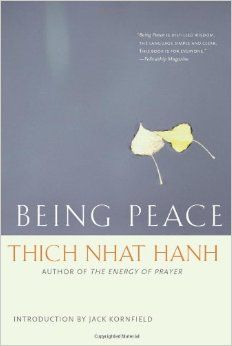
“For things to reveal themselves to us, we need to be ready to abandon our views about them.”
― Thich Nhat Hanh, Being Peace
The beauty of Thich Nhat Hanh’s words lie in their clarity and simplicity. This book is one part intro to Buddhism, one part guide to mindfulness, and one part crystalline explanation of the Zen path of liberating one’s mind through relinquishment of attachment, expectation, and desire.
5. Tao Te Ching by Lao Tzu
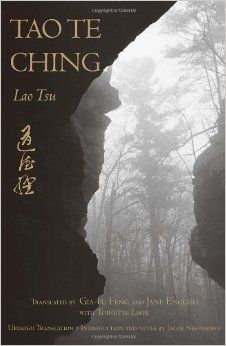
“True words aren’t eloquent;
eloquent words aren’t true.
Wise men don’t need to prove their point;
men who need to prove their point aren’t wise.
The Master has no possessions.
The more he does for others,
the happier he is.
The more he gives to others,
the wealthier he is.”
― Lao Tzu, Tao Te Ching
The Tao Te Ching, the major text of Taoism, is full of riddle-esque gems like this one that suggest a worldview completely at odds with certain Western values—i.e. acting based on self-interest, needing to prove that one has the “correct” answer, always desiring more material possessions, etc.
The book is a lovely, poetic articulation of the Taoist way of simplicity, non-attachment, humility, gratitude, and flowing intuitively with The Way of Things. This is a book I will return to throughout my life.
6. On the Road by Jack Kerouac
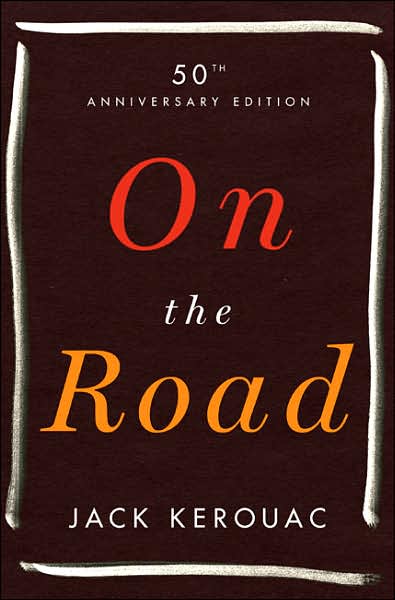
“The air was soft, the stars so fine, the promise of every cobbled alley so great, that I thought I was in a dream.”
― Jack Kerouac, On the Road
Jack Kerouac, one of the pioneers of the Beat Generation—the Zen-influenced, countercultural American group of writers—is a polarizing figure in American literature. Many have criticized him, perhaps rightfully so. Even Alan Watts, who was a character in multiple novels of Kerouac’s, wrote that Beat Zen used Zen “for justifying sheer caprice in art, literature, and life” and was “always a shade too self-conscious, too subjective, and too strident to have the flavor of Zen.”
These criticisms—and the insight that Beat Zen is not necessarily representative of classical Zen—should be kept in mind while reading Kerouac’s work. Having said that, I nonetheless feel that Kerouac’s On the Road remains a great artistic translation/portrayal of an Americanized Zen that favors whimsicality, spontaneity, non-attachment, and “digging“—i.e. earnestly, mindfully appreciating—the universe. Despite its failures, On the Road is highly accessible to Westerners and, if understood as forwarding a somewhat bastardized version of “Zen,” can yet be relished as a moving vision of detachment from traditional American values in pursuit of deeper realization and truer freedom.
7. The Dharma Bums by Jack Kerouac
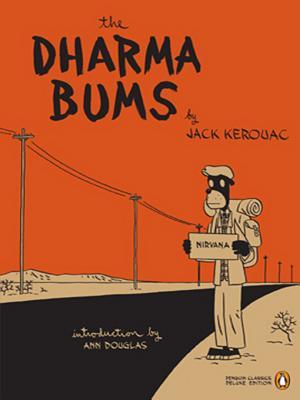
“‘Lissen Japhy,’ I said, ‘I’m not a Zen Buddhist, I’m a serious Buddhist, I’m an oldfashioned dreamy Hinayana coward of later Mahayanism,’ and so forth into the night, my contention being that Zen Buddhism didn’t concentrate on kindness so much as on confusing the intellect to make it perceive the illusion of all sources of things. ‘It’s mean,’ I complained. ‘All those Zen Masters throwing young kids in the mud because they can’t answer their silly word questions.’
‘That’s because they want them to realize mud is better than words, boy.'”
— Jack Kerouac
The Dharma Bums is kind of the unofficial sequel to On the Road, and I’m including it because it deals more explicitly with (Zen) Buddhism. Its protagonist, Japhy, is based on Gary Snyder, another Beat poet/writer, who was arguably more knowledgeable of authentic Zen Buddhism than his other Beat contemporaries, and whose actions/perspectives in the book therefore serve as an excellent map of the results of one American’s deep investment in Zen.
8. The Tao of Pooh by Benjamin Hoff
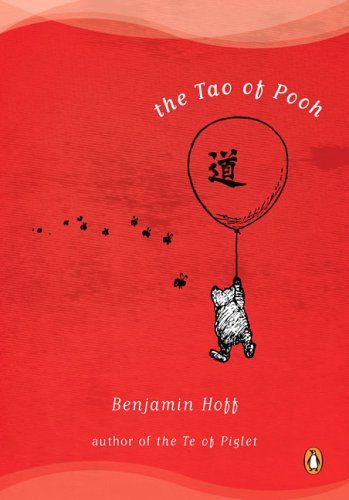
“Things just happen in the right way, at the right time. At least when you let them, when you work with circumstances instead of saying, ‘This isn’t supposed to be happening this way,’ and trying harder to make it happen some other way.”
― Benjamin Hoff, The Tao of Pooh
In this book, Benjamin Hoff treats the character of Winnie-the-Pooh as a kind of Taoist sage, arguing that Pooh’s perspectives align closely with those of Taoism and thus using Pooh as a vessel for communicating the basic ideas of Taoism. I wouldn’t advise treating this book as a definitive or scholarly text (Watts’ Tao: The Watercourse Way is more along those lines), but as an accessible, charming introduction to Taoist philosophy, it’s really quite enjoyable. Heck, you could even read it to your kids, or something.
Accept
So there you have it. As you’ll find if you do engage this literature, both Zen and Taoism have rich histories and uniquely intricate approaches to understanding the world and how to live within it. But, as I emphasized in the introduction, if there’s one thing I would have everyone in the world take away from Zen and Taoism, it would be to practice acceptance.
Take a deep breath, look around, feel the ground beneath you, the space your body is occupying. Everything is okay. Whatever you are, whatever you’ve done—there’s nothing to do but accept it. It is as it is. Let go. Forgive. Breathe. Be free.
“If you understand, things are just as they are; if you do not understand, things are just as they are.”
― Zen Proverb
Follow Jordan Bates on Twitter @_jordan_bates.

Jordan Bates
Jordan Bates is a lover of God, father, leadership coach, heart healer, writer, artist, and long-time co-creator of HighExistence. — www.jordanbates.life


![Seneca’s Groundless Fears: 11 Stoic Principles for Overcoming Panic [Video]](/content/images/size/w600/wp-content/uploads/2020/04/seneca.png)






